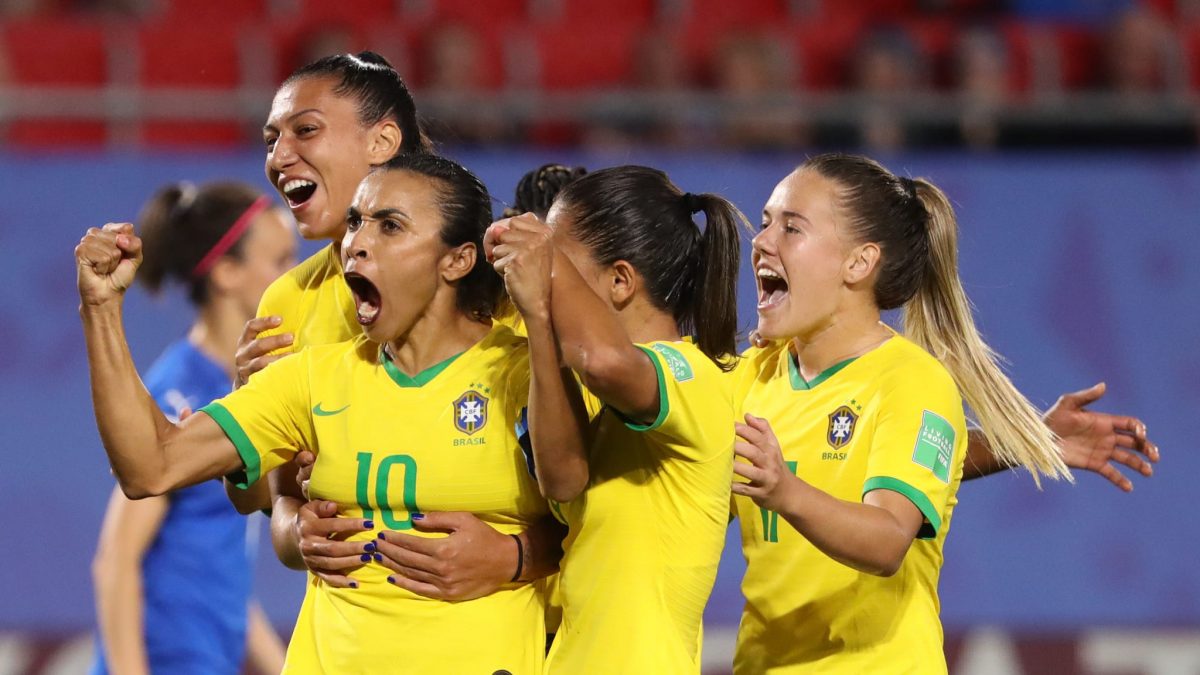The head of Brazil’s soccer federation announced that its women’s national team was getting the same pay as its men’s team.
That change in policy actually dates back to March, when the women’s team competed in the inaugural Tournoi de France, Brazilian Football Confederation (CBF) President Rogério Caboclo said at a news conference Wednesday.
“Since March of this year, CBF has made an equal value in terms of prizes and daily rates between men’s and women’s football,” Caboclo said in Portuguese. “That is, the [women’s] players earn the same thing as the [men’s] players during the call-ups. What they receive … women also receive.”
Caboclo added that the policy will apply to next year’s Summer Olympics and that “[what] men will receive at the next World Cup will be proportionally equal to what is proposed by FIFA.”
Brazil joins Australia, Norway and New Zealand in taking major steps toward pay equity. The U.S. women’s national team, on the other hand, is continuing to wage a lengthy legal battle over that issue with the U.S. Soccer Federation.
USWNT players are seeking to appeal a ruling against them in May by a federal judge who decided that the case they brought was “insufficient to create a genuine issue of material fact for trial.”
“We are shocked and disappointed with today’s decision, but we will not give up our hard work for equal pay,” USWNT spokeswoman Molly Levinson said at the time in a statement. “We are confident in our case and steadfast in our commitment to ensuring that girls and women who play this sport will not be valued as lesser just because of their gender.”
The USWNT Players Association could not immediately be reached Wednesday for comment.
A spokesman for the USSF pointed to an open letter the organization released in March, in which its former president, Carlos Cordeiro, said the USSF offered the month before “to provide identical compensation to our women’s and men’s players for all matches controlled by U.S. Soccer.”
Cordeiro claimed that the women were seeking “more than $66 million dollars, which is the difference in prize money between the last two FIFA Men’s and Women’s World Cups.” He added, “We want to take this opportunity to again note that the FIFA World Cup prize money at issue is determined by FIFA, not U.S. Soccer.”
Levinson responded at the time by saying (via ESPN), “In the U.S. it is illegal to discriminate on the basis of gender. USSF cannot use ongoing FIFA discrimination as a justification for breaking the law.”
In their lawsuit, the USWNT players noted that they have enjoyed much more success in major competitions than their male counterparts. The USWNT won the first Women’s World Cup in 1991 and has won it three more times, including last year and in 2015, and it has won four Olympic gold medals. By contrast, the best World Cup result for the U.S. men’s team was a third-place finish in 1930, and it suffered a major embarrassment by failing to qualify for the 2018 tournament.
The Brazilian women’s team hasn’t enjoyed anywhere near the same success on the international stage as the Brazilian men, but the latter has an unmatched record in World Cup play. Brazil’s men’s team has won the World Cup a record five times and has the most overall wins in the event.
Under the policy adopted this year by the Brazilian federation, however, there is “no more gender difference,” Caboclo declared Wednesday.
“The CBF is treating men and women equally,” he said.












